
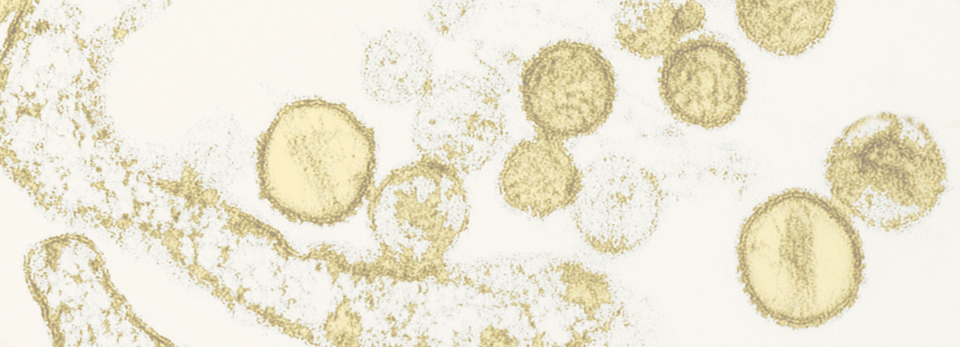
The Microbiology Society Annual Conference 2016 was held from 21–24 March at the Arena and Convention Centre (ACC), Liverpool, UK.
The Society's Annual Conference attracts over 1,200 UK and international delegates, and is one of Europe’s largest annual gatherings of microbiologists. Whether you are a veteran microbiologist or just starting out in your career, attending the Microbiology Society’s Annual Conference is a must for all of those with an interest in microbiology.
If you have any questions please email [email protected]
Follow us on Twitter @MicrobioSoc
Updates on the Annual Conference 2016 can be found using the hashtag: #Microbio16
Image: Liverpool waterfront. ACC Liverpool.
Crowdsourcing new antibiotics: the Microbiology Society has been running a project involving students looking for new antibiotics in the soil in seven schools and six undergraduate courses throughout the UK and Ireland. Students from each institution will present their findings, having won a place at the session through a competitive process. Alongside the students, staff will also be presenting posters looking at the pedagogy of the project, and looking at the implementation and educational benefits of self-guided research.
Dariel Burdass, Isabel Spence and Theresa Hudson
The movement of small molecules across biological membranes is fundamental to all life. The recent acceleration of knowledge of the structure and function of these proteins has given us unprecedented insight into their mechanism. In parallel, increased understanding of their function and diversity have led to many transporters being added or manipulated in biotechnological processes where uptake or efflux of small molecules from cells is important. This session will offer participants a grand vision of the range of transporters present in microbial systems and their current exploitation in industrial biotechnology and bioenergy (IBBE). The session includes presentations on basic and translational science on a wide range of important uptake systems in bacterial and eukaryotic microbial systems. Topics have been selected based on transport families including members that are already being manipulated in IBBE and others where there is clear untapped potential. The final session will be led by industry to promote knowledge transfer and mix problems and solutions to drive new interactions between scientists at all career stages and industrial stakeholders.
Gavin Thomas, Mark Webber, Jeffrey Green and Peter Henderson
The ability of pathogenic micro-organisms to assimilate sufficient nutrients from their host is fundamental to pathogenicity. Certain inorganic trace elements, including iron, zinc and copper, are essential for life but can also be toxic. The mammalian immune system has harnessed both the essentiality and toxicity of these micronutrients to combat microbial infections: processes collectively known as “nutritional immunity”.
Microbial pathogens require micronutrients not only for cellular development and proliferation, but for counteracting the oxidative killing machinery of the innate immune system: both catalases and superoxide dismutases require metal cofactors for function. In contrast, certain immune phagocytes flood their phagosomes with potentially lethal levels of copper. Therefore, in order to survive and proliferate within a mammalian host, microbial pathogens must deploy highly effective micronutrient sensing, uptake, homeostatic and detoxification systems.
Recently, we have gained a much deeper understanding of the host mechanisms governing nutritional immunity and the sophisticated countermeasures employed by pathogens to circumvent nutritional restriction. Centering on the elemental struggle for nutrients between pathogens and their hosts, this session will cover molecular aspects of nutritional immunity, and will explore the micronutrient uptake strategies of bacterial, fungal, and parasitic human pathogens.
Donna MacCallum and Duncan Wilson
Post-translational modifications used to be the preserve of ‘higher organisms’. However, a plethora of post-translational modifications (PTMs) – both reversible and irreversible – have now been identified in microbes. In particular, recent advances in proteomic technologies have accelerated the rate at which new PTMs are being discovered and characterised. These efforts have revealed a number of important ‘new kids on the block’ that are revolutionising the way we think about microbial physiology. At the same time, we continue to unearth hitherto unexpected insights into the role(s) played by ‘well-established’ PTMs such as glycosylation. In this two-day symposium, the world’s most influential researchers in microbial PTMs will review their fields and provide us with an update about recent advances in chemical modifications as diverse as phosphorylation, fatty acylation and acetylation, PUP/SUMOylation, ubiquitinylation and glycosylation (to name just a few), as well as more unusual modifications that have only recently been discovered. This will be followed by a focused half-day session dedicated exclusively to the technologies that can be used to identify, quantify and investigate PTMs in microbial systems.
Martin Welch, Steve Michell, Janet Quinn and Mick Tuite
The ability of pathogenic micro-organisms to assimilate sufficient nutrients from their host is fundamental to pathogenicity. Certain inorganic trace elements, including iron, zinc and copper, are essential for life but can also be toxic. The mammalian immune system has harnessed both the essentiality and toxicity of these micronutrients to combat microbial infections: processes collectively known as “nutritional immunity”.
Microbial pathogens require micronutrients not only for cellular development and proliferation, but for counteracting the oxidative killing machinery of the innate immune system: both catalases and superoxide dismutases require metal cofactors for function. In contrast, certain immune phagocytes flood their phagosomes with potentially lethal levels of copper. Therefore, in order to survive and proliferate within a mammalian host, microbial pathogens must deploy highly effective micronutrient sensing, uptake, homeostatic and detoxification systems.
Recently, we have gained a much deeper understanding of the host mechanisms governing nutritional immunity and the sophisticated countermeasures employed by pathogens to circumvent nutritional restriction. Centering on the elemental struggle for nutrients between pathogens and their hosts, this session will cover molecular aspects of nutritional immunity, and will explore the micronutrient uptake strategies of bacterial, fungal, and parasitic human pathogens.
Donna MacCallum and Duncan Wilson
Crowdsourcing new antibiotics: the Microbiology Society has been running a project involving students looking for new antibiotics in the soil in seven schools and six undergraduate courses throughout the UK and Ireland. Students from each institution will present their findings, having won a place at the session through a competitive process. Alongside the students, staff will also be presenting posters looking at the pedagogy of the project, and looking at the implementation and educational benefits of self-guided research.
Dariel Burdass, Isabel Spence and Theresa Hudson
The movement of small molecules across biological membranes is fundamental to all life. The recent acceleration of knowledge of the structure and function of these proteins has given us unprecedented insight into their mechanism. In parallel, increased understanding of their function and diversity have led to many transporters being added or manipulated in biotechnological processes where uptake or efflux of small molecules from cells is important. This session will offer participants a grand vision of the range of transporters present in microbial systems and their current exploitation in industrial biotechnology and bioenergy (IBBE). The session includes presentations on basic and translational science on a wide range of important uptake systems in bacterial and eukaryotic microbial systems. Topics have been selected based on transport families including members that are already being manipulated in IBBE and others where there is clear untapped potential. The final session will be led by industry to promote knowledge transfer and mix problems and solutions to drive new interactions between scientists at all career stages and industrial stakeholders.
Gavin Thomas, Mark Webber, Jeffrey Green and Peter Henderson
Many pathogens owe their success to elaborate virulence strategies that enable them to evade host immune defences. Taking the military analogy, they take approaches such as (i) ‘Don’t be seen’ by escaping into cells and initiating autophagy, (ii) ‘Don’t be targeted’ by coating their surface to generate a camouflage that cannot be detected and inactivating complement, (iii) ‘Don’t be killed’ by varying surface activators, and (iv) ‘Fight when necessary’ by deploying weapons such as toxins. This symposium will cover all these aspects with specific examples highlighting recent advances and describing the multifactoral evasion of the immune system elicited by certain pathogens.
Mark Stevens, Kim Hardie, Petra Oyston, Sabine Totemeyer and Ross Fitzgerald
Post-translational modifications used to be the preserve of ‘higher organisms’. However, a plethora of post-translational modifications (PTMs) – both reversible and irreversible – have now been identified in microbes. In particular, recent advances in proteomic technologies have accelerated the rate at which new PTMs are being discovered and characterised. These efforts have revealed a number of important ‘new kids on the block’ that are revolutionising the way we think about microbial physiology. At the same time, we continue to unearth hitherto unexpected insights into the role(s) played by ‘well-established’ PTMs such as glycosylation. In this two-day symposium, the world’s most influential researchers in microbial PTMs will review their fields and provide us with an update about recent advances in chemical modifications as diverse as phosphorylation, fatty acylation and acetylation, PUP/SUMOylation, ubiquitinylation and glycosylation (to name just a few), as well as more unusual modifications that have only recently been discovered. This will be followed by a focused half-day session dedicated exclusively to the technologies that can be used to identify, quantify and investigate PTMs in microbial systems.
Martin Welch, Steve Michell, Janet Quinn and Mick Tuite
Climate change has the potential to influence animal and human disease in several different ways. An increase in extreme weather events will likely disrupt existing food and water supplies, with risk of direct contamination of food supplies, increased susceptibility of crops to disease, overloading of water purification plants / disruption of water supplies leading to increased water spoilage, and risk of transmission of water borne diseases such as Cryptospordium, cholera, Giardia, as well as disruption of healthcare facilities and societal organisation resulting in epidemics. Vector-borne diseases of animals, plants and humans will likely result in changes in global distribution. Examples include: Phythophthora infestans (potato and tomato blight); vector-borne protozoal diseases such as malaria (Anopheles spp. mosquito), and vector-borne viral diseases such as Lyme’s disease (Ixodes spp. tick) and dengue (Aedes spp. esp. aegyptia). This session will focus on the effect of climate change on the epidemiology of infectious of diseases of animals and humans and highlight how new strategies will need to be developed to tackle the spread of condition such as malaria, into previously non-affected areas.
Kevin Kavanagh and Justin Pachebat
The movement of small molecules across biological membranes is fundamental to all life. The recent acceleration of knowledge of the structure and function of these proteins has given us unprecedented insight into their mechanism. In parallel, increased understanding of their function and diversity have led to many transporters being added or manipulated in biotechnological processes where uptake or efflux of small molecules from cells is important. This session will offer participants a grand vision of the range of transporters present in microbial systems and their current exploitation in industrial biotechnology and bioenergy (IBBE). The session includes presentations on basic and translational science on a wide range of important uptake systems in bacterial and eukaryotic microbial systems. Topics have been selected based on transport families including members that are already being manipulated in IBBE and others where there is clear untapped potential. The final session will be led by industry to promote knowledge transfer and mix problems and solutions to drive new interactions between scientists at all career stages and industrial stakeholders.
Gavin Thomas, Mark Webber, Jeffrey Green and Peter Henderson
Many pathogens owe their success to elaborate virulence strategies that enable them to evade host immune defences. Taking the military analogy, they take approaches such as (i) ‘Don’t be seen’ by escaping into cells and initiating autophagy, (ii) ‘Don’t be targeted’ by coating their surface to generate a camouflage that cannot be detected and inactivating complement, (iii) ‘Don’t be killed’ by varying surface activators, and (iv) ‘Fight when necessary’ by deploying weapons such as toxins. This symposium will cover all these aspects with specific examples highlighting recent advances and describing the multifactoral evasion of the immune system elicited by certain pathogens.
Mark Stevens, Kim Hardie, Petra Oyston, Sabine Totemeyer and Ross Fitzgerald
Microbes are wonderful chemists and their ability to produce pleasurable flavours and fragrances in foods and drinks has been exploited for thousands of years. Technological progress is now allowing us to extend the uses of yeasts and bacteria from things like brewing and cheese-making all the way to making renewable chemicals to reduce the rate of climate change. This session will bring together university and industry scientists to showcase the extraordinary variety of Nature’s microbial treasure trove and demonstrate how advances in genome mining and synthetic biology are unlocking this natural diversity to an ever-increasing extent. The benefits to society of re-discovering traditional foods and flavours as well as building new businesses harnessing the power of microbiology are many and an exciting ‘taste’ of future possibilities will permeate the meeting.
Ian Roberts, Ed Louis, John Morrissey and Elinor Thompson
The One Health paradigm posits that human, animal and environmental health are intimately linked. The Mycobacterium tuberculosis complex (MTBC), the assembly of pathogens that cause tuberculosis (TB) in man and a range of wild and domesticated mammals, and the environmentally prevalent non-tuberculous mycobacteria (NTM) represent an ideal group of bacteria in which to explore One Health concepts in infectious disease. We bring together key researchers in the mycobacterial field that encompass the diversity and complexity of infections caused by these bacteria.
Steve Michell, Steven Gordon and Sabine Totemeyer
Post-translational modifications used to be the preserve of ‘higher organisms’. However, a plethora of post-translational modifications (PTMs) – both reversible and irreversible – have now been identified in microbes. In particular, recent advances in proteomic technologies have accelerated the rate at which new PTMs are being discovered and characterised. These efforts have revealed a number of important ‘new kids on the block’ that are revolutionising the way we think about microbial physiology. At the same time, we continue to unearth hitherto unexpected insights into the role(s) played by ‘well-established’ PTMs such as glycosylation. In this two-day symposium, the world’s most influential researchers in microbial PTMs will review their fields and provide us with an update about recent advances in chemical modifications as diverse as phosphorylation, fatty acylation and acetylation, PUP/SUMOylation, ubiquitinylation and glycosylation (to name just a few), as well as more unusual modifications that have only recently been discovered. This will be followed by a focused half-day session dedicated exclusively to the technologies that can be used to identify, quantify and investigate PTMs in microbial systems.
Martin Welch, Steve Michell, Janet Quinn and Mick Tuite
The evolution of life is affected profoundly by interactions between organisms changing over time. Conflict plays a large part in this: from competition for food and mates between members of the same species, to predator versus prey and host versus parasite relationships. These "Red Queen" effects, whereby organisms evolve quickly and competitively in order to remain in the same niche, have been used to explain species' constant extinction rates, and the prevalence of sex. Recent advances in genomics have provided evidence for 'molecular arms races' between species, and a variety of experimental approaches have shed further light on the genetics of conflict in viruses, bacteria, and microbial eukaryotes. This session aims to host a discussion of recent developments relevant to evolutionary microbiology and parasitology.
Gareth Bloomfield
The innate immune system represents the first line of defence against infection. It consists of a number of constitutively expressed and inducible factors that suppress or prevent virus infection. Some of these are well-characterised, others are still poorly understood. This symposium will highlight the roles of these anti-viral factors in the immune responses of both vertebrate and non-vertebrate species, and discuss the mechanisms by which they create an environment hostile to virus replication. Virus countermeasures to these processes will also be described. The symposium will take place concurrently with the restriction factor workshop, allowing a forum for the exchange of ideas between disparate groups of virologists.
Andrew MacDonald, James Stewart
The evolution of life is affected profoundly by interactions between organisms changing over time. Conflict plays a large part in this: from competition for food and mates between members of the same species, to predator versus prey and host versus parasite relationships. These "Red Queen" effects, whereby organisms evolve quickly and competitively in order to remain in the same niche, have been used to explain species' constant extinction rates, and the prevalence of sex. Recent advances in genomics have provided evidence for 'molecular arms races' between species, and a variety of experimental approaches have shed further light on the genetics of conflict in viruses, bacteria, and microbial eukaryotes. This session aims to host a discussion of recent developments relevant to evolutionary microbiology and parasitology.
Gareth Bloomfield
This workshop will involve a range of clinical virology cases or short papers which relate to studies relevant to clinical virology network. Different aspects of clinical virology that will be covered include: differential diagnosis of encephalitis, management of hepatitis, diversity of rotavirus sequences, and diagnosis of respiratory infections.
Miren Iturriza-Gomara and Matthew Donati
Many pathogens owe their success to elaborate virulence strategies that enable them to evade host immune defences. Taking the military analogy, they take approaches such as (i) ‘Don’t be seen’ by escaping into cells and initiating autophagy, (ii) ‘Don’t be targeted’ by coating their surface to generate a camouflage that cannot be detected and inactivating complement, (iii) ‘Don’t be killed’ by varying surface activators, and (iv) ‘Fight when necessary’ by deploying weapons such as toxins. This symposium will cover all these aspects with specific examples highlighting recent advances and describing the multifactoral evasion of the immune system elicited by certain pathogens.
Mark Stevens, Kim Hardie, Petra Oyston, Sabine Totemeyer and Ross Fitzgerald
Microbes are wonderful chemists and their ability to produce pleasurable flavours and fragrances in foods and drinks has been exploited for thousands of years. Technological progress is now allowing us to extend the uses of yeasts and bacteria from things like brewing and cheese-making all the way to making renewable chemicals to reduce the rate of climate change. This session will bring together university and industry scientists to showcase the extraordinary variety of Nature’s microbial treasure trove and demonstrate how advances in genome mining and synthetic biology are unlocking this natural diversity to an ever-increasing extent. The benefits to society of re-discovering traditional foods and flavours as well as building new businesses harnessing the power of microbiology are many and an exciting ‘taste’ of future possibilities will permeate the meeting.
Ian Roberts, Ed Louis, John Morrissey and Elinor Thompson
The One Health paradigm posits that human, animal and environmental health are intimately linked. The Mycobacterium tuberculosis complex (MTBC), the assembly of pathogens that cause tuberculosis (TB) in man and a range of wild and domesticated mammals, and the environmentally prevalent non-tuberculous mycobacteria (NTM) represent an ideal group of bacteria in which to explore One Health concepts in infectious disease. We bring together key researchers in the mycobacterial field that encompass the diversity and complexity of infections caused by these bacteria.
Steve Michell, Steven Gordon and Sabine Totemeyer
Post-translational modifications used to be the preserve of ‘higher organisms’. However, a plethora of post-translational modifications (PTMs) – both reversible and irreversible – have now been identified in microbes. In particular, recent advances in proteomic technologies have accelerated the rate at which new PTMs are being discovered and characterised. These efforts have revealed a number of important ‘new kids on the block’ that are revolutionising the way we think about microbial physiology. At the same time, we continue to unearth hitherto unexpected insights into the role(s) played by ‘well-established’ PTMs such as glycosylation. In this two-day symposium, the world’s most influential researchers in microbial PTMs will review their fields and provide us with an update about recent advances in chemical modifications as diverse as phosphorylation, fatty acylation and acetylation, PUP/SUMOylation, ubiquitinylation and glycosylation (to name just a few), as well as more unusual modifications that have only recently been discovered. This will be followed by a focused half-day session dedicated exclusively to the technologies that can be used to identify, quantify and investigate PTMs in microbial systems.
Martin Welch, Steve Michell, Janet Quinn and Mick Tuite
The innate immune system represents the first line of defence against infection. It consists of a number of constitutively expressed and inducible factors that suppress or prevent virus infection. Some of these are well-characterised, others are still poorly understood. This symposium will highlight the roles of these anti-viral factors in the immune responses of both vertebrate and non-vertebrate species, and discuss the mechanisms by which they create an environment hostile to virus replication. Virus countermeasures to these processes will also be described. The symposium will take place concurrently with the restriction factor workshop, allowing a forum for the exchange of ideas between disparate groups of virologists.
Andrew MacDonald, James Stewart
Offered papers will be presented in areas related to infections caused by prokaryotes of human, veterinary or botanical significance including epidemiology, diagnosis, identification, typing, pathogenesis, treatment, antimicrobial agents and resistance, prevention, virulence factors, host responses and immunity, transmission, and models of infection at the cell, tissue or whole organism level.
Sheila Patrick and Sabine Totemeyer
For many years, researchers have turned to simple and experimentally amenable microbial organisms to understand the basic workings of the cell. In recent years the range of organisms used in research has expanded in parallel with the huge developments in genome sequencing and molecular biology. As the genetic basis of many human diseases is becoming clear, molecular studies in simplified model systems can be used to determine gene function and give insights into disease pathology. This timely and widely relevant session will highlight and promote the systems and experimental approaches being used today.
Jason King, Elinor Thompson and Gareth Bloomfield
This workshop will involve a range of clinical virology cases or short papers which relate to studies relevant to clinical virology network. Different aspects of clinical virology that will be covered include: differential diagnosis of encephalitis, management of hepatitis, diversity of rotavirus sequences, and diagnosis of respiratory infections.
Miren Iturriza-Gomara and Matthew Donati
Offered papers focusing on any area in microbial ecology, including (non-human) host–microbe communities and interactions, marine and freshwater microbiology, soil and geomicrobiology, and air-, cryo- and extremophile microbiology will be presented.
Geertje Van Keulen, Ryan Seipke and Sarah Kuehne
Microbes are wonderful chemists and their ability to produce pleasurable flavours and fragrances in foods and drinks has been exploited for thousands of years. Technological progress is now allowing us to extend the uses of yeasts and bacteria from things like brewing and cheese-making all the way to making renewable chemicals to reduce the rate of climate change. This session will bring together university and industry scientists to showcase the extraordinary variety of Nature’s microbial treasure trove and demonstrate how advances in genome mining and synthetic biology are unlocking this natural diversity to an ever-increasing extent. The benefits to society of re-discovering traditional foods and flavours as well as building new businesses harnessing the power of microbiology are many and an exciting ‘taste’ of future possibilities will permeate the meeting.
Ian Roberts, Ed Louis, John Morrissey and Elinor Thompson
This workshop will include abstracts on aspects of DNA virology. The workshop will be structured around a typical life-cycle of these viruses, starting with pathogenesis to focus the audience on the diversity of diseases they cause. The session will then move on to cover virus entry and uncoating, genome replication, particle structure, assembly and egress. Both human and animal pathogens will be covered, including the opportunity for clinicians to present studies on ongoing outbreaks or epidemiological studies. The host response to infection will be covered, for example the acquired immune responses, together with vaccine or antiviral-based treatments or therapies that can be used to combat infection.
Gill Elliott, Jo Parish, James Stewart and Colin Crump
This workshop will include abstracts on aspects of positive strand RNA virology. The workshop will be structured around a typical life-cycle of these viruses, starting with pathogenesis to focus the audience on the diversity of diseases they cause. The session will then move on to cover virus entry and uncoating, genome replication, particle structure, assembly and egress. Both human and animal pathogens will be covered, including the opportunity for clinicians to present studies on ongoing outbreaks or epidemiological studies. The host response to infection will be covered, for example the acquired immune responses, together with vaccine or antiviral-based treatments or therapies that can be used to combat infection.
David Evans, Adrian Fox and Erica Bickerton
This workshop will include abstracts on aspects of restriction factor biology including constitutively expressed and interferon-induced host factors. We wish to fully explore the complexities of restriction factor function and the countermeasures employed by viruses. Depending upon submissions we will cover host restriction to virus entry and uncoating followed by genome replication and, where relevant, integration. The session will then move on to cover virus genome editing and host strategies to prevent virion packaging and release. Evasion strategies of human and animal pathogens will be covered.
Alain Kohl and Andrew MacDonald
This workshop will include abstracts on aspect of viral haemorrhagic fevers and the workshop will be structured around a typical life-cycle of the viruses that cause these diseases, covering their pathogenesis, virus entry and uncoating, genome replication, particle structure, assembly and egress. There will be an opportunity for clinicians to present studies on ongoing outbreaks, epidemiological studies and diagnostics. The host response to infection will be covered, for example the acquired immune responses, together with vaccine or antiviral-based treatments or therapies being developed to combat infection.
Stephen Griffin, Alain Kohl and David Evans
For many years, researchers have turned to simple and experimentally amenable microbial organisms to understand the basic workings of the cell. In recent years the range of organisms used in research has expanded in parallel with the huge developments in genome sequencing and molecular biology. As the genetic basis of many human diseases is becoming clear, molecular studies in simplified model systems can be used to determine gene function and give insights into disease pathology. This timely and widely relevant session will highlight and promote the systems and experimental approaches being used today.
Jason King, Elinor Thompson and Gareth Bloomfield
This workshop will involve a range of clinical virology cases or short papers which relate to studies relevant to clinical virology network. Different aspects of clinical virology that will be covered include: differential diagnosis of encephalitis, management of hepatitis, diversity of rotavirus sequences, and diagnosis of respiratory infections.
Miren Iturriza-Gomara and Matthew Donati
Understanding of critical interactions of insects with microbes has made great progress in recent years, fuelled by methodological advances in (ecological) genomics and analytical techniques. This symposium highlights current advances in insect microbiology at different scales, from molecular insights into insect-microbe dependencies to recognition and application of microbial intervention mechanisms that affect insect behaviour and transmission of pathogens and the dynamics of insect microbiome assembly.
Geertje van Keulen, Ryan Seipke, Thorsten Allers and Miranda Whitten
Microbes are wonderful chemists and their ability to produce pleasurable flavours and fragrances in foods and drinks has been exploited for thousands of years. Technological progress is now allowing us to extend the uses of yeasts and bacteria from things like brewing and cheese-making all the way to making renewable chemicals to reduce the rate of climate change. This session will bring together university and industry scientists to showcase the extraordinary variety of Nature’s microbial treasure trove and demonstrate how advances in genome mining and synthetic biology are unlocking this natural diversity to an ever-increasing extent. The benefits to society of re-discovering traditional foods and flavours as well as building new businesses harnessing the power of microbiology are many and an exciting ‘taste’ of future possibilities will permeate the meeting.
Ian Roberts, Ed Louis, John Morrissey and Elinor Thompson
This forum will consider work on all fundamental aspects of the physiology, biochemistry and structure of prokaryotic cells. This includes metabolism, synthesis and transport of macromolecules, membrane transport of ions and small molecules, the cell cycle, cell architecture, differentiation, sensing and cellular responses, signalling and communication, bioenergetics and the structure, and function and mode of action of microbial factors. Papers on the engineering and applications of microbes will also be welcome.
Steve Michell and Mark Webber
Offered papers on all aspects of the genes and genomes of prokaryotes and their mobile elements will be considered, including their sequencing, transcription, translation, regulation, chromosome dynamics, gene transfer, population genetics and evolution, taxonomy and systematics, comparative genomics, metagenomics, bioinformatics, and synthetic biology.
Lori Snyder and Thorsten Allers
This workshop will include abstracts on aspects of DNA virology. The workshop will be structured around a typical life-cycle of these viruses, starting with pathogenesis to focus the audience on the diversity of diseases they cause. The session will then move on to cover virus entry and uncoating, genome replication, particle structure, assembly and egress. Both human and animal pathogens will be covered, including the opportunity for clinicians to present studies on ongoing outbreaks or epidemiological studies. The host response to infection will be covered, for example the acquired immune responses, together with vaccine or antiviral-based treatments or therapies that can be used to combat infection.
Gill Elliott, Jo Parish, James Stewart and Colin Crump
This workshop will include abstracts on aspects of negative strand RNA virology. Depending upon submissions the workshop will be structured around a typical life-cycle of these viruses, starting with pathogenesis to focus the audience on the diversity of diseases they cause. The session will then move on to cover virus entry and uncoating, genome replication, particle structure, assembly and egress. Both human and animal pathogens will be covered, including the opportunity for clinicians to present studies on ongoing outbreaks or epidemiological studies. The host response to infection will be covered, for example the acquired immune responses, together with vaccine or antiviral-based treatments or therapies that can be used to combat infection.
Wendy Barclay and Silke Schepelmann
This workshop will include abstracts on aspects of the biology of positive strand RNA, double stranded RNA or plant viruses. Depending upon submissions the workshop will be structured around a typical life-cycle of these viruses, starting with pathogenesis to focus the audience on the diversity of diseases they cause. The session will then move on to cover virus entry and uncoating, genome replication, particle structure, assembly and egress. Both human, animal and plant pathogens will be covered as will the host responses to infection, for example the acquired immune or RNAi responses, together with vaccine or antiviral-based treatments or therapies that can be used to combat infection.
David Evans, Adrian Fox and Erica Bickerton
We invite abstracts on any aspect of retrovirus biology. Depending upon submissions the workshop will be structured around a typical life-cycle of these viruses, starting with pathogenesis to focus the audience on the diversity of diseases they cause. The session will then move on to cover virus entry and uncoating, genome replication, particle structure, assembly and egress. Both human and animal pathogens will be covered, including the opportunity for clinicians to present studies on ongoing outbreaks or epidemiological studies. The host response to infection will be covered, for example the acquired immune responses, together with vaccine or antiviral-based treatments or therapies that can be used to combat infection.
Cathy Adamson and Kate Bishop
Genetic manipulation technologies are essential for advances in many areas of biology, from research into fundamental cellular mechanisms to the applied fields of industrial biotechnology and synthetic biology. This session will feature a number of the inventors and pioneers of technologies that have become indispensable for microbiological research and development.
Rocky Cranenburgh and Ryan Seipke
The innate immune system represents the first line of defence against infection. It consists of a number of constitutively expressed and inducible factors that suppress or prevent virus infection. Some of these are well-characterised, others are still poorly understood. This symposium will highlight the roles of these anti-viral factors in the immune responses of both vertebrate and non-vertebrate species, and discuss the mechanisms by which they create an environment hostile to virus replication. Virus countermeasures to these processes will also be described. The symposium will take place concurrently with the restriction factor workshop, allowing a forum for the exchange of ideas between disparate groups of virologists.
Andrew MacDonald and James Stewart
The role of global regulatory systems in controlling the transcriptional landscape in bacteria has been a cornerstone of modern molecular microbiology. Much of this work has focussed on how regulators such as HNS, two component systems and quorum sensing systems allow bacteria to control expression in response to changes in their environment. Recent methodological advances have opened exciting new avenues in our approach to studying factors that affect the global transcriptional landscape in bacteria. In this symposium we will focus on the interplay between acquisition of genetic material and changes in the global transcriptional profile in bacteria, and how seemingly stochastic processes such as chromosomal position or methylation patterns have a profound effect on the global transcriptional profile and bacterial phenotypes.
Lori Snyder, Mark Webber and Alan McNally
Understanding of critical interactions of insects with microbes has made great progress in recent years, fuelled by methodological advances in (ecological) genomics and analytical techniques. This symposium highlights current advances in insect microbiology at different scales, from molecular insights into insect-microbe dependencies to recognition and application of microbial intervention mechanisms that affect insect behaviour and transmission of pathogens and the dynamics of insect microbiome assembly.
Geertje van Keulen, Ryan Seipke, Thorsten Allers and Miranda Whitten
Understanding of critical interactions of insects with microbes has made great progress in recent years, fuelled by methodological advances in (ecological) genomics and analytical techniques. This symposium highlights current advances in insect microbiology at different scales, from molecular insights into insect-microbe dependencies to recognition and application of microbial intervention mechanisms that affect insect behaviour and transmission of pathogens and the dynamics of insect microbiome assembly.
Geertje van Keulen, Ryan Seipke, Thorsten Allers and Miranda Whitten
Genetic manipulation technologies are essential for advances in many areas of biology, from research into fundamental cellular mechanisms to the applied fields of industrial biotechnology and synthetic biology. This session will feature a number of the inventors and pioneers of technologies that have become indispensable for microbiological research and development.
Rocky Cranenburgh and Ryan Seipke
The role of global regulatory systems in controlling the transcriptional landscape in bacteria has been a cornerstone of modern molecular microbiology. Much of this work has focussed on how regulators such as HNS, two component systems and quorum sensing systems allow bacteria to control expression in response to changes in their environment. Recent methodological advances have opened exciting new avenues in our approach to studying factors that affect the global transcriptional landscape in bacteria. In this symposium we will focus on the interplay between acquisition of genetic material and changes in the global transcriptional profile in bacteria, and how seemingly stochastic processes such as chromosomal position or methylation patterns have a profound effect on the global transcriptional profile and bacterial phenotypes.
Lori Snyder, Mark Webber and Alan McNally
The innate immune system represents the first line of defence against infection. It consists of a number of constitutively expressed and inducible factors that suppress or prevent virus infection. Some of these are well-characterised, others are still poorly understood. This symposium will highlight the roles of these anti-viral factors in the immune responses of both vertebrate and non-vertebrate species, and discuss the mechanisms by which they create an environment hostile to virus replication. Virus countermeasures to these processes will also be described. The symposium will take place concurrently with the restriction factor workshop, allowing a forum for the exchange of ideas between disparate groups of virologists.
Andrew MacDonald and James Stewart
Abstract submission is now closed.
All submitted oral abstracts are available in the online Programme.
All posters can be displayed throughout the Conference.
The poster abstracts book can be downloaded below:
Monday 21 March
19:00–21:00
Tuesday 22 March
19:00–21:00
Wednesday 22 March
19:00–21:00
In order to ensure your poster presentation is displayed correctly, you are asked to comply with the following:
We have created a guide on how to give a poster presentation, which can be downloaded below:
In order to ensure your presentation runs smoothly, you are asked to comply with the following:
We have created a guide on how to give an oral presentation, which can be downloaded below:
A companion video on top tips for presentation is also available:
Online registration for the Annual Conference is now closed. Registrations will now only be accepted onsite.
Applications for funding to attend the Annual Conference 2016 have now closed. Applicants will be notified of the outcome by 10 February 2016.
The Society offers funds via the Conference Grant schemes to support the attendance of members at all stages of their careers:
See the relevant pages for further details including application forms and full terms and conditions.
Eligible Full members requiring funding can apply via the Travel Grant scheme. Members may apply to the 1 March 2016 closing date for the Annual Conference alone.
For all Conference Grants enquiries, please contact [email protected]
|
Registration Categories (all rates are per day) |
Early Bird Available until 23:59, Monday 22 February 2016 |
Full Price Available until 23:59, Monday 14 March 2016 |
Late Onsite only, available from Sunday 20 March 2016 |
|---|---|---|---|
|
|
Per day |
Per day |
Per day |
|
Affiliate |
£140 |
£150 |
£160 |
|
Full Concessionary Member |
£50 |
£60 |
£70 |
|
Full Member |
£70 |
£80 |
£90 |
|
Honorary Member |
£0 |
£0 |
£0 |
|
International Associate Member resident in all other countries (excluding UK and Ireland) |
£140 |
£150 |
£160 |
|
International Associate Member resident in lower-middle income economies*** |
£50 |
£60 |
£70 |
|
International Associate Member resident in low income economies*** |
£0 |
£0 |
£0 |
|
Postgraduate Student Member |
£50 |
£60 |
£70 |
|
Undergraduate Student Member |
£0 |
£0 |
£0 |
|
Non-Member |
£150 |
£160 |
£170 |
|
CVN Member (Attendance Tuesday PM and All Day Wednesday) |
£120 |
£130 |
£140 |
|
CBMNet Member (Attendance All Day Monday and Tuesday AM) |
£120 |
£130 |
£140 |
*** See:
The Registration Desk will be located in the foyer at the ACC Liverpool and open as follows:
Upon registration you should receive an automated confirmation email. Please contact [email protected] if after 24 hours this has not been received.
If you need a letter of invitation for a visa application, we will be happy to supply this after we have received full payment. To find out if you need a visa to visit the UK, please visit the UK visa and immigration website.
It is the policy of the Microbiology Society not to supply an invitation letter to any delegate without payment and we will not reply to any request from an unregistered delegate. When the delegate has paid, the Conference Office will email back a confirmation/receipt letter and, upon request, a letter of invitation, which may be used to obtain the necessary visa.
Please note that all conference delegates are responsible for their own travel and visa arrangements; the Microbiology Society will not take any responsibility for travel or visa problems.
All registration fees must be paid in full BEFORE arrival at the conference. Any outstanding registration fees must be paid before admittance will be granted to the conference.
Refunds are not provided, however substitutions of attendees can be made at any time by contacting [email protected].
Every year we invite international speakers to represent all areas of microbiology. Each person below is highly recognised in their field.
All accommodation can be booked online through Reservation Highway, who have secured a range of options to suit all budgets throughout Liverpool at discounted rates.
Accommodation in a guesthouse is also available. For further information and booking, please contact Reservation Highway.
Phone: +44 (0)1423 525577
Email: [email protected]
The conference will be held at the ACC Liverpool:
Arena and Convention Centre Liverpool
Kings Dock
Liverpool Waterfront
L3 4FP
General enquiries: +44(0)151 475 8888
Email: [email protected]
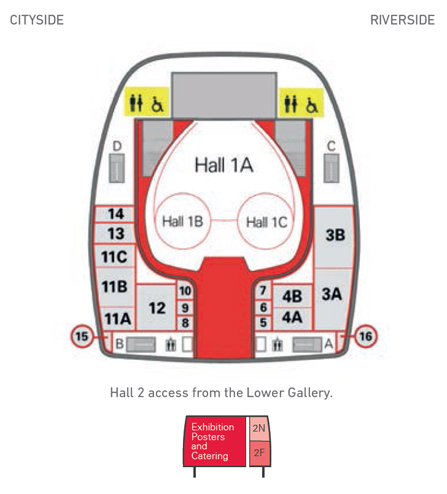
Please see the detailed map and directions on the ACC Liverpool website.
If you are travelling using a sat nav, please use postcode L3 4FP. If your device doesn't recognise ACC Liverpool, you can try the following:
From the Wirral, Wales and the M53, leave the M53 motorway at junction 3 (Birkenhead) and follow the A552 for the Birkenhead (Queensway) Tunnel and Liverpool City Centre.
From the south, leave the M6 at junction 21A and take the M62 to Liverpool. At the end of the M62, follow signs for Liverpool City Centre along Edge Lane, and then follow signs for the Waterfront.
From the north, leave the M6 at junction 26 and follow signs for M58 Liverpool. Follow to the end of the M58 and then take signs for A59 Liverpool. Continue to follow signs for Liverpool City Centre until picking up signs for the Waterfront.
The Liverpool Waterfront Car Park is signposted as 'Waterfront' on the city-wide 'available spaces' signage.
Liverpool John Lennon Airport is the nearest international airport to the ACC Liverpool. The express bus service Route 500 runs between the airport and Liverpool City Centre, taking approximately 25 minutes and stopping within a five-minute walk of Liverpool ACC. For a timetable and route map please visit the Arriva Bus website. Please see the Liverpool Airport website for further details.
National Express coaches run from Manchester Airport to Liverpool Coach Station and takes 50 minutes. Please see the National Express website for information about coach times and fares. Please see the Manchester Airport website for further information and a journey planner.
ACC Liverpool is a 20-minute walk from Liverpool Lime Street. You can also transfer at Lime Street onto the underground Wirral Line trains to James Street station (10-minute walk) or catch the CityLink bus (every 12 minutes) directly to ACC Liverpool. If travelling from outside Merseyside, you can catch an underground train to James Street station from Lime Street station, inclusive of the cost of your ticket.
Information about train times and fares are available from the National Rail enquries website.
Virgin Trains offer discounted group travel for groups of between three and nine passengers travelling together. This currently stand at a 20% discount off Advance tickets booked through their website – for more information, visit the group tickets page of their website.
Most Liverpool city centre-bound buses will call at either Queen Square bus station (a 15-minute walk) or Liverpool ONE Bus Station, which is only a five-minute walk to ACC Liverpool.
The CityLink bus links Queen Square Bus Station, James Street rail station, Lime Street station and Liverpool ONE Bus Station to ACC Liverpool. The CityLink bus service operates every 12 minutes as a circular service around the city centre.
For up-to-date information on all bus, train and ferry services, call Traveline Merseyside on 0151 236 7676, open 8am to 8pm every day of the week, or visit the Merseytravel website.
For information about travel by coach please visit the National Express website.
Please see the ACC Liverpool website for details on local car parks.
If this is your first conference, we have created a guide to help you get the most out of your attendance. This can be downloaded below:
Registration opens at 07:00 each day and will be located by the main entrance at the ACC Liverpool. If you have any questions or need support, please visit the Conferences team here.
Badges are issued by the Microbiology Society and are only to be used by the named person for the days indicated. For security purposes, badges must be worn at all times during the Conference.
A certificate of attendance can be requested at the Registration Desk or requested by email from [email protected]
The Conference has been accredited by the Royal Society of Biology (114 credits), the Royal College of Pathologists (30 credits) and the Institute of Biomedical Science (38 credits). Ask at the Professional Development information desk for further information, or contact [email protected]. Those wishing to claim CPD credits should sign a daily register held at the Professional Development information desk, which is located next to registration.
Please ensure your mobile phone is switched to silent mode or off during the scientific sessions.
While every effort has been made to ensure the programme is accurate, changes are unavoidable and we will ensure updates are provided throughout the Conference online.
Posters will be presented in Hall 2 and presenters will be by their posters on the day of their related session. An abstracts book can be located on our website and links to abstracts for oral presentations are now in our online programme.
For a chance to win with our Passport to Prizes competition, you need to complete the quiz sheet in your delegate's bag. The prize draw will take place on Wednesday evening at the Microbiology Society stand and your entries must be in by lunchtime on Wednesday to be counted.
The Society will be carrying out filming and photography throughout the Conference. The images and videos will be used to promote the Conference and the activities of the Society. They may be used online, in Society publications, or for other PR and marketing purposes.
If you do not wish to appear in photographs or films, please make this known to a member of the team.
Only recording set up with prior permission is authorised.
All disclosed dietary requirements made at the point of registration have been shared with the catering team at the ACC in advance. However, please ensure you ask for advice if required and the team will do their best to accommodate your needs.
Delegates, exhibitors and speakers tweeting from the Conference are invited to include the hashtag #Microbio16 in their tweets. A Twitter feed will be displayed in the exhibition area. You can follow the Society on Twitter @MicrobioSoc.
The Wi-Fi has kindly been sponsored by Elsevier. To log on, go to your internet settings and select the network option Free_Wi-Fi. This will take you to the ACC Liverpool landing page, where you can click the 'free access' button.
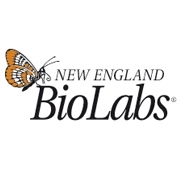
|


|
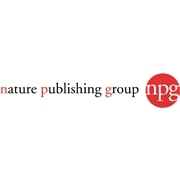
|
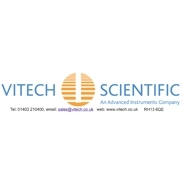
|
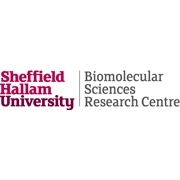
|
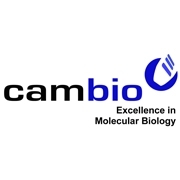
|
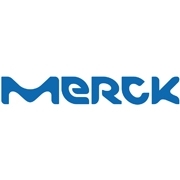
|
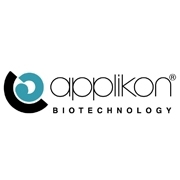
|

|
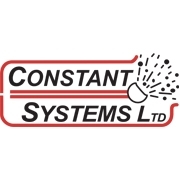
|

|
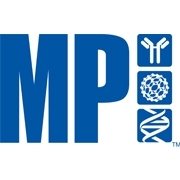
|
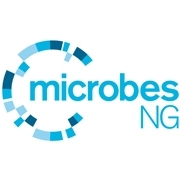
|
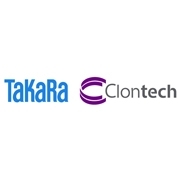
|
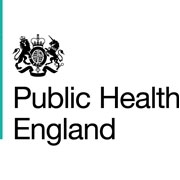
|
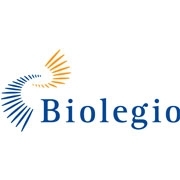
|
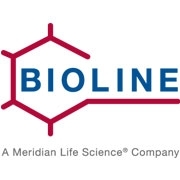
|
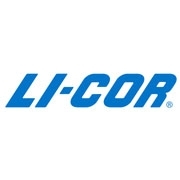
|

|

|

|


The exhibition and sponsorship opportunities at the Annual Conference have now ended. To enquire about exhibition bookings for next year's event, please contact [email protected]